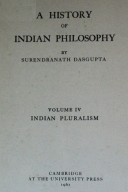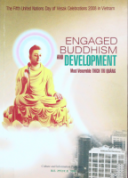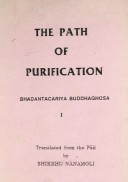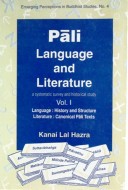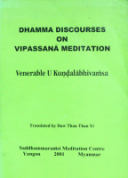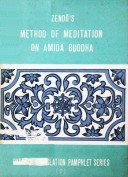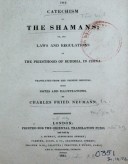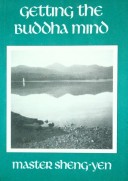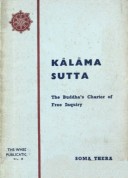Tìm Sách
Sách tiếng Anh-English >> A History Of Indian Philosophy Vol. IV
Thông tin tra cứu
- Tên sách : A History Of Indian Philosophy Vol. IV
- Tác giả : Surendranath Dasgupta
- Dịch giả :
- Ngôn ngữ : Anh
- Số trang : 449
- Nhà xuất bản : Cambridge University Press
- Năm xuất bản : 1961
- Phân loại : Sách tiếng Anh-English
- MCB : 1210000004954
- OPAC :
- Tóm tắt :
PREFACE
The third volume of the present series was published in 1940. The manuscript of the fourth volume was largely ready at that time and it would have been possible to send it for publication at least by 1942. But the second world-war commenced in 1939 and although the Cambridge University Press was prepared to accept the manuscript even during war-time, the despatch of the manuscript from Calcutta to Cambridge and the transmission of proofs to and fro between England and India appeared to me to be too risky. In 1945, after retiring from the Chair of Philosophy in the Calcutta University, I came to England. But shortly after my arrival here I fell ill, and it was during this period of illness that I revised the manuscript and offered it to the University Press. This explains the unexpected delay between the publication of the third volume and the present one. The promises held out in the preface to the third volume, regarding the subjects to be treated in the present volume, have been faithfully carried out. But I am not equally confident now about the prospects of bringing out the fifth volume. I am growing in age and have been in failing health for long years. The physical and mental strain of preparing a work of this nature and of seeing it through the Press is considerable, and I do not know if I shall be able to stand such a strain in future. But I am 8till collecting the materials for the fifth volume and hope that I may be able to see it published in my life-time.
The present volume deals with the philosophy of the Bhãgavata-purãna, the philosophy of Madhva and his followers, the philosophy of Vallabha and the philosophy of the Gaudiya school of Vaisnavism. So far as I know, nothing important has yet been published on the philosophy of the Bhãgavata-purăna and that of Vallabha. Two important works by Mr Nagaraja Sarmã of Madras and by Professor Helmuth von Glasenapp on the philosophy of Madhva have been published in English and German respectively. But so far nothing has appeared about the philosophy of the great teachers of the Madhva school such as Jaya-tirtha and Vyãsa-tirtha. Very little is known about the great controversy between the eminent followers of the Madhva school of thought and of the followers of the sankara school of Vedanta. In my opinion Jaya-tirtha and Vyãsatĩrtha present the highest dialectical skill in Indian thought. There is a general belief amongst many that monism of Sankara presents the final phase of Indian thought. The realistic and dualistic thought of the Sãmkhya and the yoga had undergone a compromise with monism both in the Purãnas and in the hands of the later writers. But the readers of the present volume who will be introduced to the philosophy of Jaya-tirtha and particularly of Vyãsatĩrtha will realize the strength and uncompromising impressiveness of the dualistic position. The logical skill and depth of acute dialectical thinking shown by Vyãsa-tirtha stands almost unrivalled in the whole field of Indian thought. Much more could have been written on the system of Madhva logic as explained in the Tarka- tãndava of Vyãsa-tĩrtha. In this great work Vyãsa-tĩrtha has challenged almost every logical definition that appears in the Tattva-cintãmam of Gangesa, which forms the bed-rock of the new school of Nyãya logic. But this could have been properly done only in a separate work on the Madhva logic. Of the controversy between the monists of the Sankara school and the dualists of the Madhva school, most people are ignorant of the Madhva side of the case, though there are many who may be familiar with the monistic point of view. It is hoped that the treatment of the philosophy of Madhva and his followers undertaken in the present volume will give new light to students of Indian thought and will present many new aspects of dialectical logic hitherto undiscovered in Indian or European thought.
The treatment of the philosophy of Vallabha which is called visuddhãdvaita or pure monism, presents a new aspect of monism and also gives us a philosophical analysis of the emotion of devotion. Though readers of Indian philosophy may be familiar with the name of Vallabha, there are but few who are acquainted with the important contributions of the members of his school.
I have not devoted much space to the philosophy of the Bhãgavata-purãna. Much of its philosophical views had already been anticipated in the treatment of the Sãmkhya, yoga and the Vedanta. As regards the position of God and His relation to the world the outlook of the Bhãgavata-purãna is rather ambiguous. The Bhãgavata-purãna has therefore been referred to for support by the Madhvas, Vallabhas and thinkers of the Gaudĩya school.
The Gaudiya school seems to make the Bhãgavata-purãna the fundamental source of its inspiration.
The chief exponent of the Gaudiya school of thought is Caitanya. He, however, was a religious devotee and very little is known of his teachings. He did not produce any literary or philosophical work. But there were some excellent men of letters and philosophers among his disciples and their disciples. The treatment of the Gaudiya school of Vaisnavism thus gives a brief exposition of the views of Râpa Gosvãmĩ, Jĩva Gosvãmĩ and Baỉadeva Vidyãbhũsana. Dr S. K. De has contributed a numoer of important articles on the position of Jĩva Gosvãmĩ, though it does not seem that he cared to put an emphasis on the philosophical perspective.
In writing the present volume I have been able to use the huge amount of published materials in Sanskrit as well as a number of rare manuscripts which I collected from South India on my journeys there on various occasions.
My best thanks are due to my old friend, Dr F. W. Thomas, who, in spite of his advanced age and many important preoccupations, took the trouble to revise some portions of the manuscript and of revising and correcting the proofs, with so much care and industry. But for his help the imperfections of the present work would have been much greater. I also have to thank Dr £. J. Thomas for the many occasional helps that I received from him from the time of the first inception of the present series. My best thanks are also due to my wife, Mrs Surama Dasgupta, M.A., Ph.D. (Cal. et Cantab), ốãstri, for the constant help that I received from her in the writing of the book and also in many other works connected with its publication. I am also grateful to Dr Satindra Kumar Mukherjee, M.A., Ph.D., my former pupil, for the help that I received from him when I was preparing the manuscript some years ago. I wish also to thank the Syndics of the University Press for undertaking the publication of this volume at a time when the Press was handicapped by heavy pressure of work, and by great difficulties of production.
SURENDRANATH DASGUPTA
Trinity College, Cambridge
August, 1948
CONTENTS
CHAPTER XXIV – THE BHÃGAVATA PURÃNA
- The Bhãgavata-purõna
- Dharma
- Brahman, Paramătman, Bhagavat and Paramehxxra
- Kapila’s philosophy in die Bhãgavata-pưrãna
- Eschatology
CHAPTER XXV – MADHVA AND HIS SCHOOL
- Madhva’s life
- Madhva Gurus
- Important Madhva works
- Teachers and writers of the Madhva School
- Ramanuja and Madhva
CHAPTER XXVI – MADHVA’S INTERPRETATION OF THE BRAHMA-SUTRAS
- Interpretation of Brahma-sũtra, I. I. I
- Interpretation of Brakmasũtra, I. I. 2
- Interpretation of Brakma-sũtra, I. I. 3-4
- A general review of the other important topics of the Brahma-sũtras
CHAPTER XXVII – A GENERAL REVIEW OF THE PHILOSOPHY OF MADHVA
- Ontology
- Pramãnas (ways of valid knowledge)
- Svatah-prãmãnya (self-validity of knowledge)
- Illusion and Doubt
- Defence of Pluralism (bheda)
CHAPTER XXVIII – MADHVA LOGIC
- Perception
- Inference (Anumana)
- Tarka (Ratiocination)
- Concomitance (Vyãpti)
- Epistemological process in Inference
- Various considerations regarding Inference
- Testimony
CHAPTER XXIX – CONTROVERSY BETWEEN THE DUALISTS AND THE MONISTS
- Vyasa-tirtha, Madhusũdana and Ramacarya on the Falsity of the World
- Nature of Knowledge
- The World as Illusion
CHAPTER XXX – CONTROVERSY BETWEEN THE DUALISTS AND THE MONISTS (cont.)
- A refutation of the definition of Avidyã (nescience)
- Perception of Ajnãna (ignorance)
- Inference of Ajriãna
- The theory of Avidyã refuted
- Ajnatta and Ego-hood (ahamkara)
- Indefinability of World-appearance
- Nature of Brahman
- Refutation of Brahman as material and instrumental cause
- Liberation (moksa)
CHAPTER XXXI – THE PHILOSOPHY OF VALLABHA
- Vallabha’s interpretation of the Brahma-sũtra
- The nature of Brahman
- The Categories
- The Pramãnas
- Concept of bhakti
- Tropics of Vallabha Vedanta as explained by Vallabha’s followers
- Vitthala’s interpretation of Vallabha’s ideas
- Life of Vallabha (1481-1533)
- Works of Vallabha and his disciples
- Visnusvãmin
CHAPTER XXXII – CAITANYA AND HIS FOLLOWERS
- Caitanya’s biographers
- Life of Caitanya
- Emotionalism of Caitanya
- Gleanings from Caitanya-Caritamrta on the subject of Caitanya’s philosophical views
- Some companions of Caitanya
CHAPTER XXXIII – THE PHILOSOPHY OF JIVA GOSVÃMI and BALADEVA VIDYÃBHŨSANA, FOLLOWERS OF CAITANYA
- Ontology
- Status of the World
- God and His Powers
- God’s relation to His devotees
- Nature of bhakti
- Ultimate Realization
- The joy of bhaki
- The philosophy of Baladeva Vidyãbhũsana
INDEX
 Facebook
Facebook
 Google
Google
 Google+
Google+
